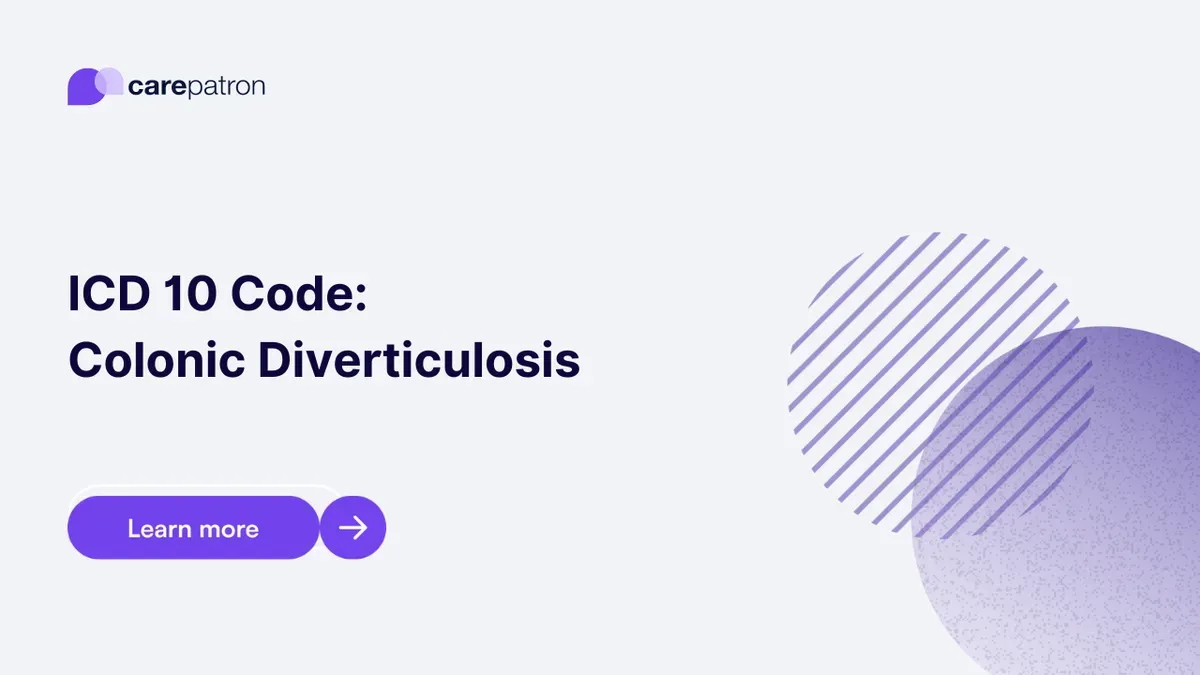
Colonic Diverticulosis ICD-10-CM Codes
Read this short guide to learn about Colonic Diverticulosis ICD codes you can use!
Use Code
Commonly asked questions
The best way to prevent Diverticulosis from forming is to have a healthy diet of plants and whole foods. You must also regularly exercise and drink enough water each day. Doing so will reduce the chances of diverticula from forming.
Unfortunately, once a diverticula forms, it’s permanent. The best thing you can do is to follow this healthier lifestyle you’ve adopted to prevent more from forming and to reduce the risk of diverticulitis from occurring.
Healthcare professionals who conduct colonoscopies and imaging tests will likely notice the presence of diverticula in the colon.
EHR and practice management software
Get started for free
*No credit card required
Free
$0/usd
Unlimited clients
Telehealth
1GB of storage
Client portal text
Automated billing and online payments
